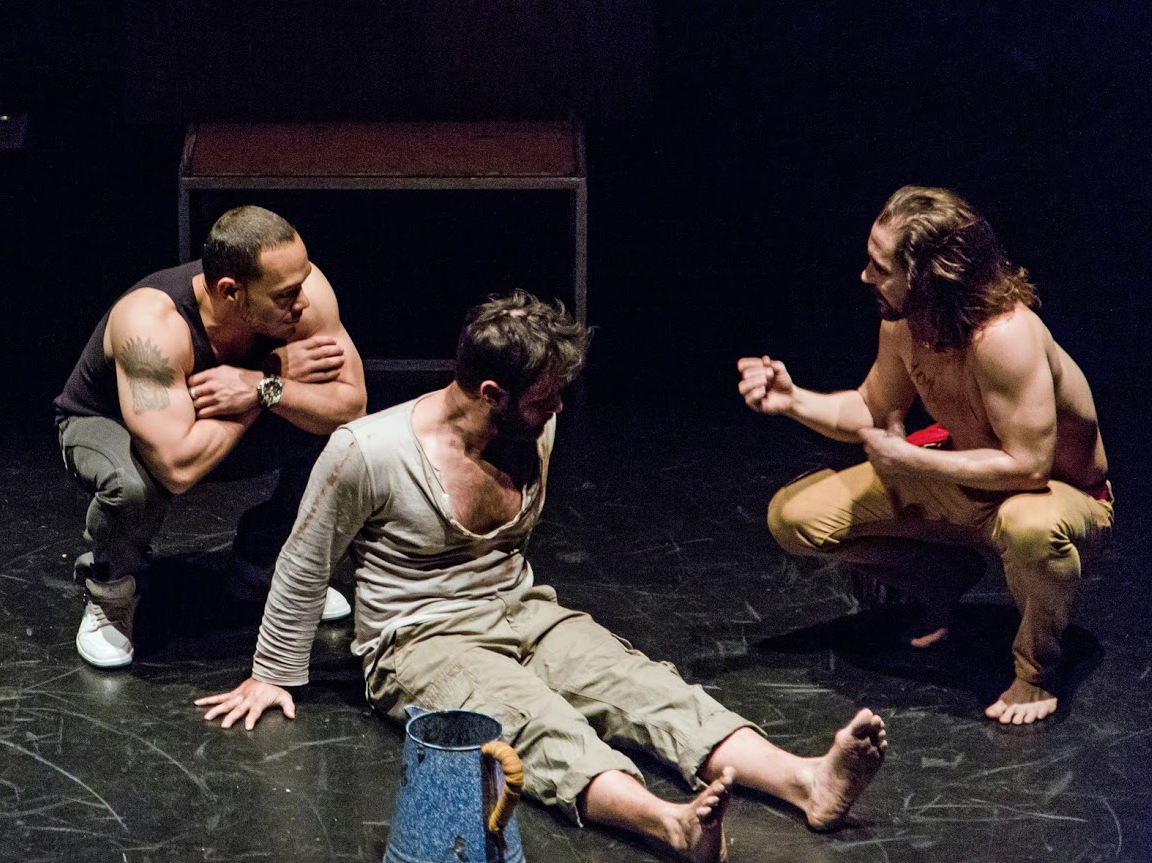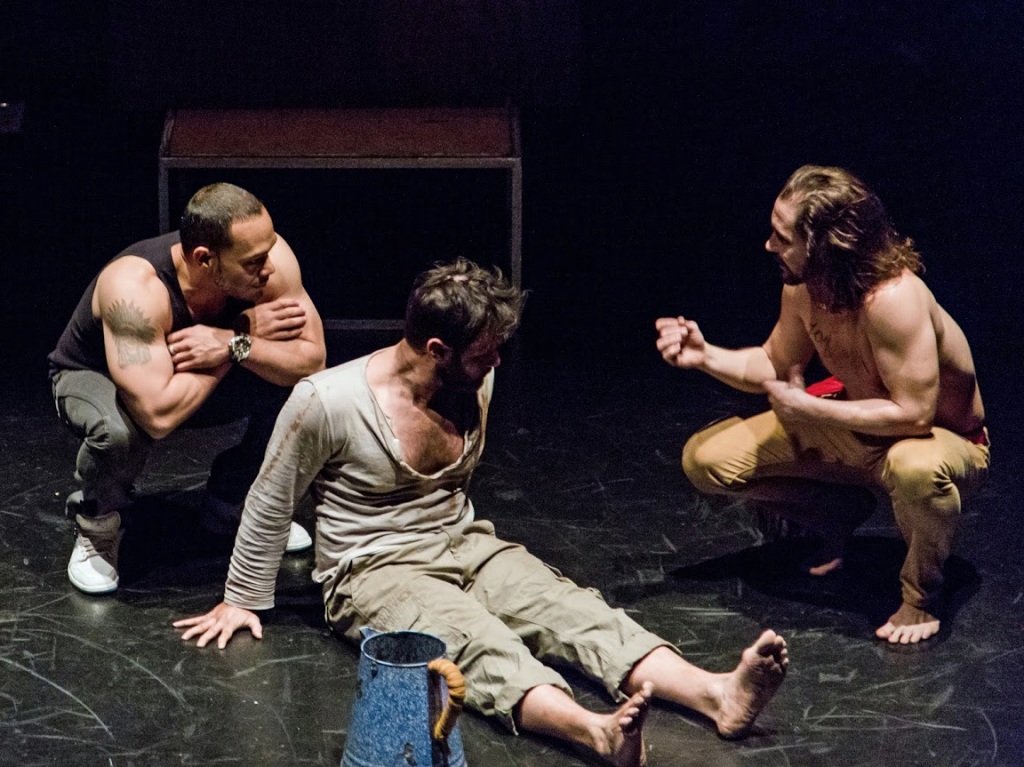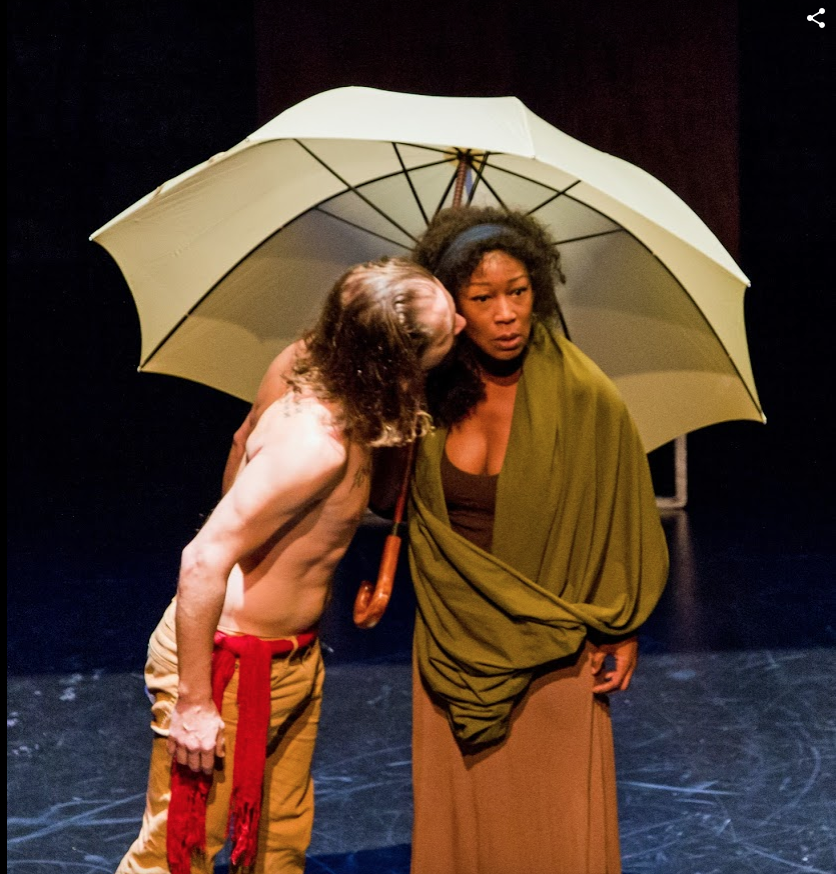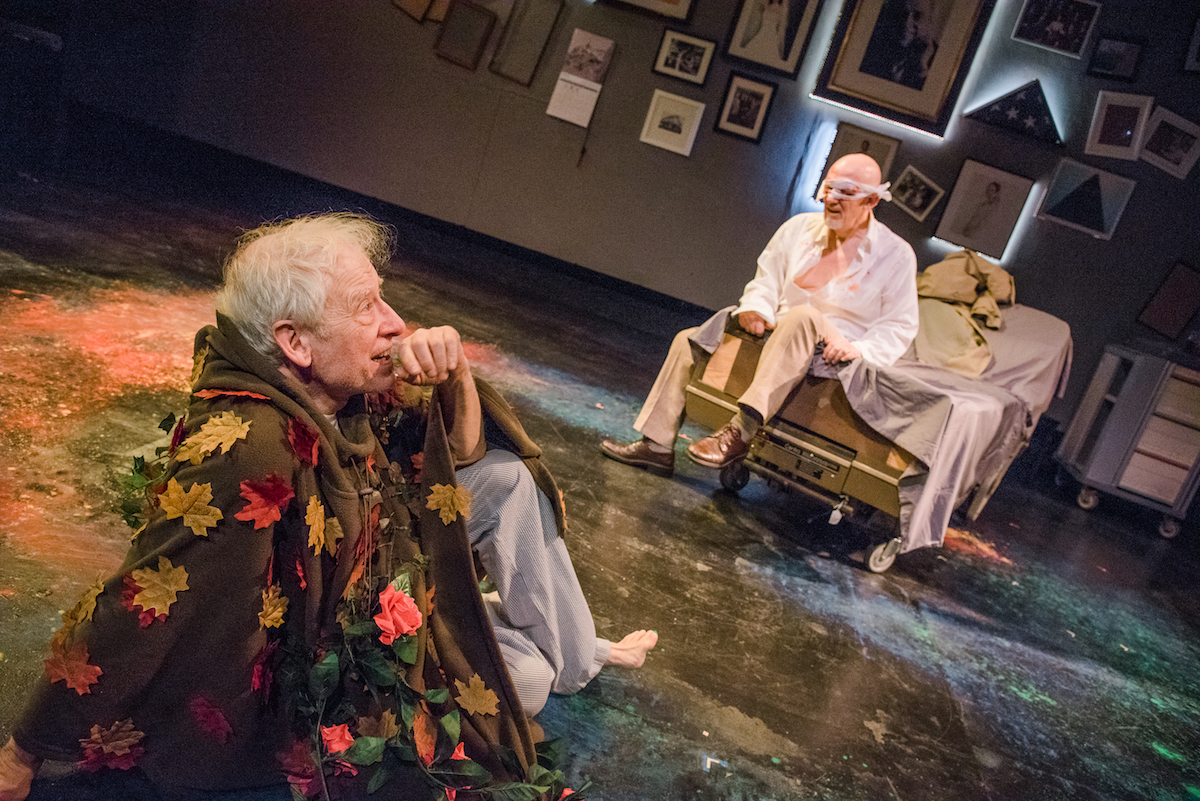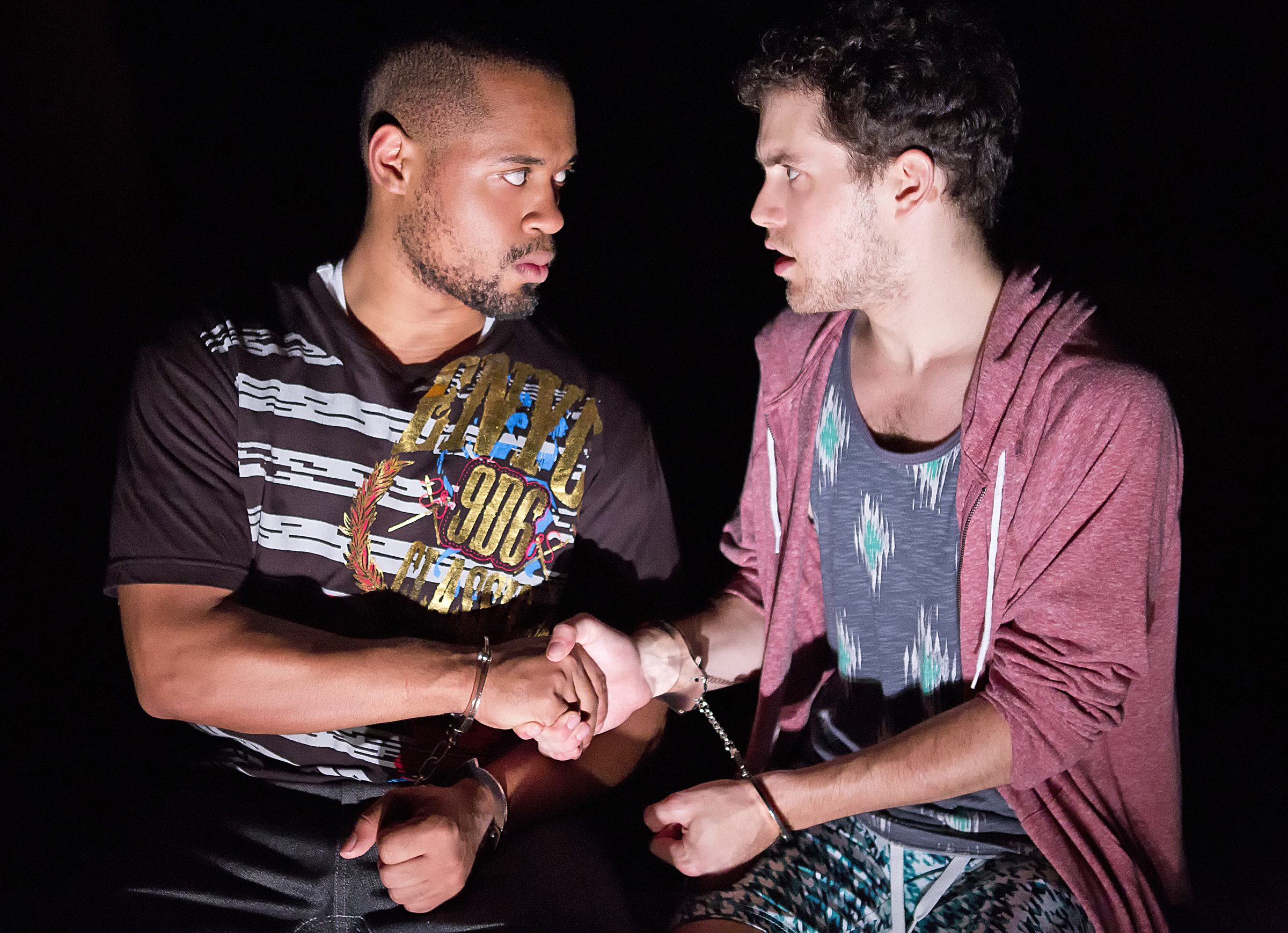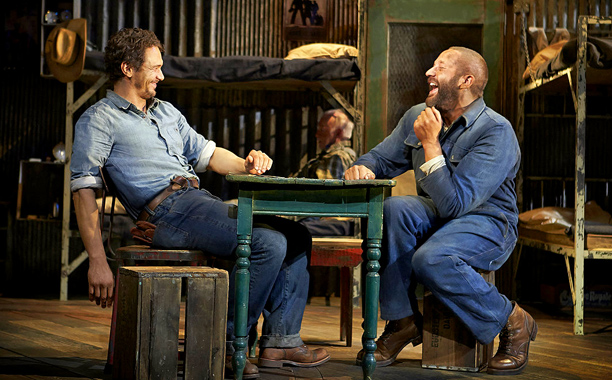by Stuart Miller
Somewhere inside Stephen Adly Guirgis’ “The Last Days of Judas Iscariot” is a compelling play about love and betrayal, guilt and redemption. Unfortunately, that would be a 90-minute one act while the actual play being resurrected at La Mama is three hours long, forcing the audience to suffer for Guirgis’ sins as a writer.
Usually Guirgis’ weaknesses in plot and character are overshadowed by the joyous profanity and dark, wounded wit that brings his searing dialogue and soliloquies to rich, vibrant life. “The Motherfucker with the Hat” was occasionally uneven and “Our Lady of 121st Street” lacked a fully realized dramatic vision yet both were funny and moving and lingered in memory. (His one act, “Dominca, The Fat Ugly Ho,” was by necessity less ambitious and thus more cohesive.)
“Judas Iscariot” will stick in the memory for all the wrong reasons– the uneven performances, the unsuccessful shifts in tone and the sheer endlessness. It was originally produced in 2005 at the Public Theater, directed by Guirgis’ long-time collaborator Philip Seymour Hoffman, with a cast that included Stephen McKinley Henderson, Sam Rockwell, Callie Thorne, and Eric Bogosian as Satan. That production received plenty of praise but also criticism for being repetitive, overstuffed with ideas and too long, clocking in at two hours and forty minutes.
If only this one were that short. Esteemed director Estelle Parsons did not try to persuade Guirgis to revisit the script, trimming away some of the excess. Instead, she has somehow added twenty more minutes. The play is set in Purgatory but it’s the audience that feels stuck there.
The show is a trial in which an agnostic defense attorney pleads the fate of the catatonic Judas Iscariot (Gabriel Furman, who performs fine in flashbacks), pitted against an unctuous prosecutor before a hostile judge. But first Guirgis fritters away precious time on stage nonsense like pratfalls by the bailiff along with pointless legal maneuverings and the introduction of characters who never return.
The trial itself is intermittently riveting, either for the history lessons it provides or for the ways in which it carves into conventional wisdom, like the hard-hitting, but fair and accurate, cross examination of the hypocrisies of Mother Teresa by Judas’ defense attorney, Fabiana Aziza Cunningham, (Suzanne Di Donna). Unfortunately, most of those moments go on too long and the rest are undercut by a scene that falls flat, or worse. The banter between the prosecutor and Mother Teeresa opens with tired schtick about her being hard-of-hearing. Asked for her name, she gives the time. How original. This scene continues to be played for laughs without achieving them even though if you closed your eyes, Mother Teresa (played by a man, Bob Adrian) sounded like Chico Marx, while the prosecutor (Daniel Grimaldi) sounded like a blend of Mel Brooks and Moe Szyslak, the bartender from the Simpsons.
The actors who underplay their roles fare the best– Gabe Fazio as Simon the Zealot is dressed as if he just stepped out of “Platoon” or “Apocalypse Now” but his intensity comes across as a quiet fury mixed with frustration. The questioning provokes a thoughtful discussion about Judas’ motives, his intent and even whether Jesus, who told Judas at the Last Supper to “do what you gotta do,” essentially set Judas up for a fall to help Jesus make a larger point. Often, however, the points are belabored, as it is with Caiaphas the Elder, the Jewish leader who turned Jesus over to Pontius Pilate and with Pontius Pilate himself; Guirgis has interesting things to say about the political and moral sides of their behavior but he says it over and over.
One of the biggest roles belongs to Satan, (Javier Molina, riveting at first in his bullying charm but who also outwears his welcome when Guirgis brings him back for a final showdown). The problem in the confrontation between Satan and Cunningham is that she, like all the characters, is so thinly sketched that we don’t care about her fate. By the penultimate scene, a final argument between Jesus and Judas, it’s even difficult to feel invested in their debate about loyalty and forgiveness; the play ends with the jury’s foreman (Stephen Dexter, in one of the stronger performances) telling a catatonic Judas he was found guilty and then confessing his betrayal of his wife, an on-the-nose modern human metaphor for the relationship between Judas and Jesus. It could have been a poignant monologue in another play. Here it was just one final reason to check the watch and guess how much longer the play might last.
Photos: Shashwat Gupta
(La Mama, 66 E. 4th Street between 2nd and 3rd Avenue—through March 26th , ovationtix.com or 866-811-4111. Run Time is three hours)


